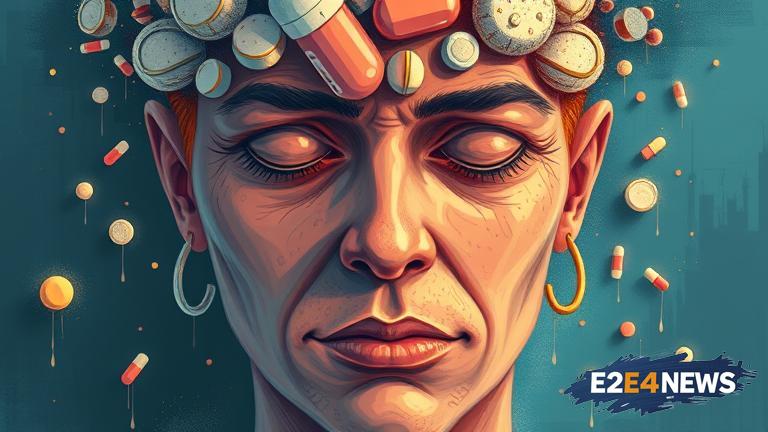The landscape of antidepressant treatment is undergoing a significant transformation, with innovative approaches and technologies being developed to improve efficacy and reduce side effects. Researchers are exploring new targets for antidepressant action, such as the gut-brain axis and the role of inflammation in depression. Additionally, advances in genetics and genomics are enabling personalized treatment strategies, allowing clinicians to tailor therapy to an individual’s unique genetic profile. Furthermore, the use of digital technologies, such as mobile apps and virtual reality, is expanding access to mental health services and providing new tools for monitoring and managing symptoms. The development of novel antidepressant compounds, such as ketamine and psilocybin, is also showing promising results in clinical trials. These new treatments have the potential to rapidly reduce symptoms of depression and anxiety, providing relief for patients who have not responded to traditional therapies. Moreover, the increasing focus on preventative measures, such as lifestyle interventions and early intervention programs, is helping to reduce the risk of mental health disorders. The importance of addressing mental health stigma and promoting awareness and education is also being recognized, with efforts to normalize the conversation around mental health and encourage help-seeking behavior. As the field of antidepressant research continues to evolve, it is likely that we will see a shift towards more effective, personalized, and accessible treatments. This, in turn, will have a profound impact on the lives of millions of people worldwide, improving mental health outcomes and reducing the economic burden of mental illness. The future of antidepressants is exciting and promising, with many potential breakthroughs on the horizon. For example, researchers are investigating the use of brain-computer interfaces and neurostimulation techniques, such as transcranial magnetic stimulation, to develop new treatments for depression. The role of nutrition and diet in mental health is also being explored, with studies suggesting that certain dietary patterns and nutrients may have a positive impact on mood and cognitive function. Moreover, the development of artificial intelligence and machine learning algorithms is enabling the analysis of large datasets and the identification of patterns and predictors of mental health outcomes. This information can be used to develop more effective treatment strategies and improve patient outcomes. The use of virtual reality and augmented reality technologies is also being explored, with studies suggesting that these technologies can be used to reduce symptoms of anxiety and depression. Furthermore, the importance of social connections and relationships in maintaining good mental health is being recognized, with efforts to develop interventions that promote social support and community engagement. The future of antidepressants is likely to be shaped by a combination of these factors, including advances in technology, genetics, and our understanding of the complex factors that contribute to mental health. As research continues to uncover the underlying mechanisms of depression and anxiety, we can expect to see the development of more targeted and effective treatments. The potential for personalized medicine to revolutionize mental health treatment is significant, with the possibility of tailoring therapy to an individual’s unique genetic profile and medical history. Additionally, the increasing focus on preventative measures and early intervention programs is likely to have a profound impact on the lives of millions of people worldwide, reducing the risk of mental health disorders and improving mental health outcomes. The importance of addressing mental health stigma and promoting awareness and education cannot be overstated, with efforts to normalize the conversation around mental health and encourage help-seeking behavior. As the field of antidepressant research continues to evolve, it is likely that we will see a shift towards more effective, personalized, and accessible treatments, improving the lives of millions of people worldwide.
